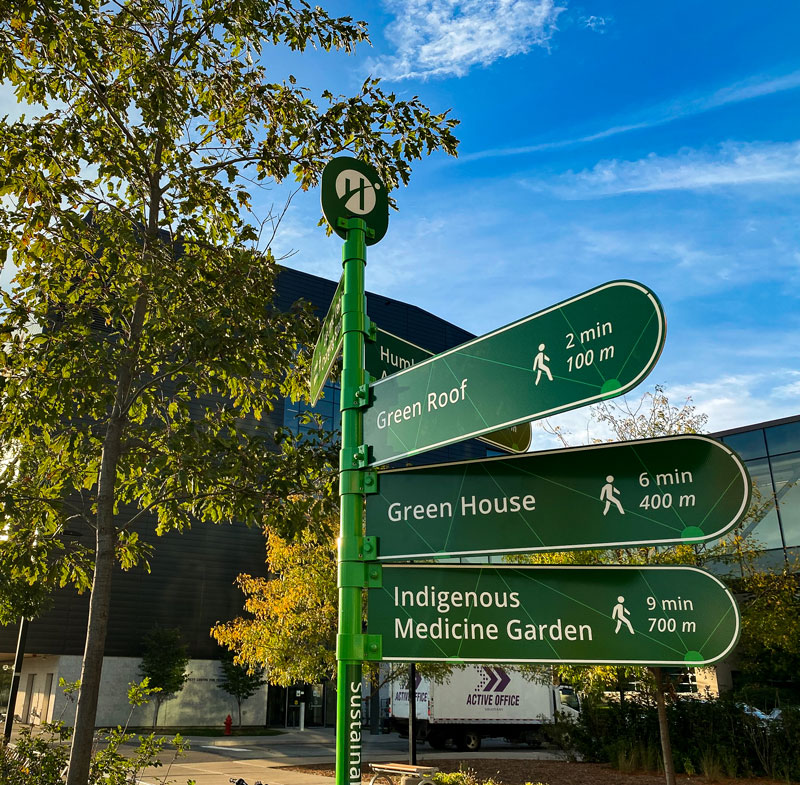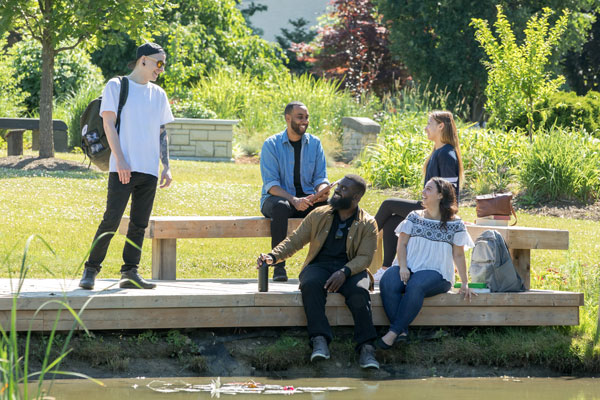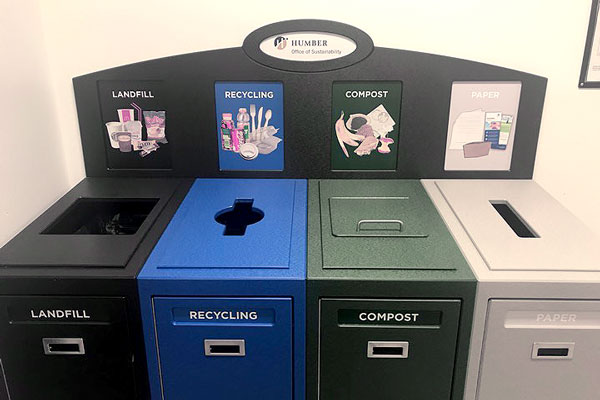SUSTAINABILITY PILLAR 2: ENABLE
Enabling a Sustainable Campus Experience
Having earned multiple national and global awards and recognitions for building construction and green energy initiatives, Humber Polytechnic and the University of Guelph-Humber have been leading sustainable campus development for over a decade. Our students have access to connect with and study in nature and to learn in buildings built to LEED platinum standards and the Canada Green Building Council’s (CAGBC) Zero Carbon Building Designs.
By integrating sustainability principles and climate action into Humber’s operations, learners experience a “living lab”- an environment where they experience climate action in practice.
Take a self-guided tour of how we are living our sustainability commitments by visiting the Campus Compass app and search for Sustainability Trail or visiting our Sustainability Trail webpage.

INNOVATIVE LEARNING SPACES & OPERATIONS
Leading by Example
Through our intentional efforts, we model our values so that students can both witness and directly benefit from sustainability in action. Our sustainable practices extend beyond our infrastructure and buildings to the daily actions of our staff, the choices we make in purchasing, waste reduction, landscape management, and even the food we serve. We will continue to enhance our practices – such as leaning into electrification and other energy alternatives to allow us to go beyond net zero to net positive.

Our Commitment: Humber students will learn examples of living sustainably through our campuses and healthy and equitable operations.

Climate Action and the Built Environment

Healthy Landscapes & Biodiversity

Sustainable Procurement and Food Practices

Sustainable Transportation

